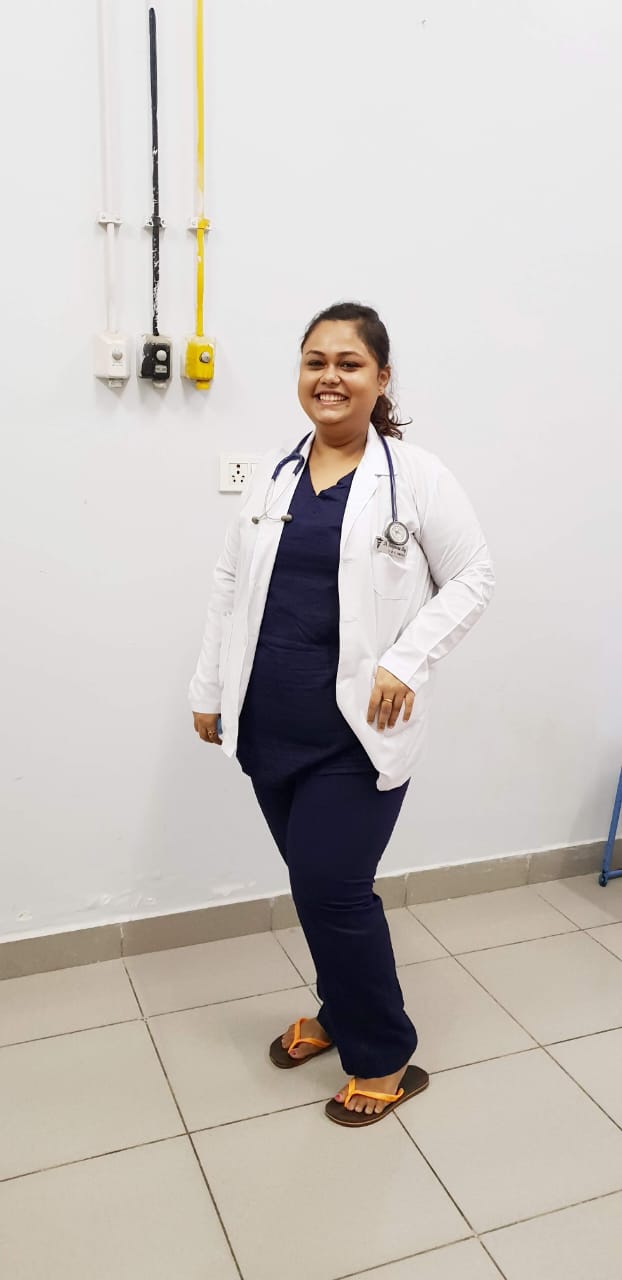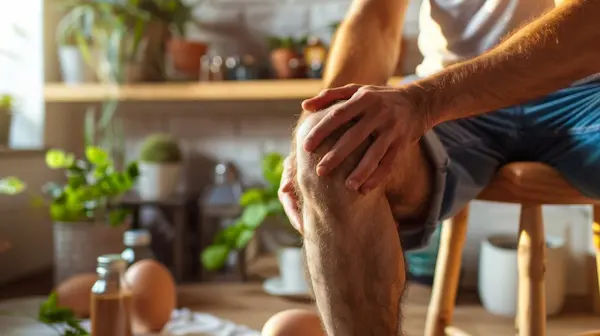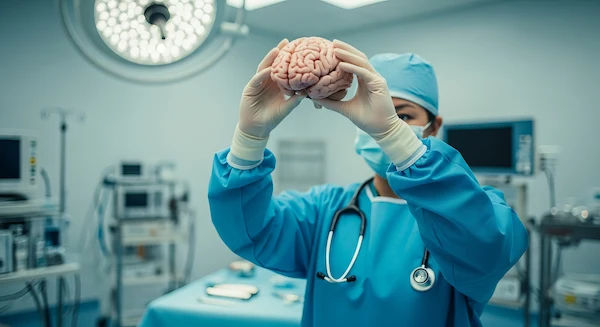How to Increase Female Libido Naturally and Quickly
Practical sexual health tips to increase female libido naturally and quickly. Reduce stress, improve sleep, enhance intimacy, and know when to seek care.

Written by Dr. Siri Nallapu
Reviewed by Dr. Rohinipriyanka Pondugula MBBS
Last updated on 13th Jan, 2026

Introduction: Why Libido Matters and What “Normal” Looks Like
A woman’s sexual desire naturally rises and falls throughout her life, shaped by many factors including hormones, emotional connection, and overall well-being. It’s normal for libido to change from week to week or year to year. Stress, poor sleep, medications, or shifts in hormones can all influence desire. If you’re seeking a female libido boost, the positive news is that small, evidence-based changes can make a big difference in comfort, mood, and intimacy.
This complete guide explores what affects libido, natural steps to enhance it, and when to consult a healthcare professional. It blends practical tips with scientific insight so you can feel more confident, connected, and in tune with your body.
Consult a Top Gynaecologist Personalised Advice
What Affects Female Libido?
Many overlapping factors can influence sexual desire. Recognising these helps you take control of what you can improve.
- Stress and mental health: Chronic stress, anxiety, and depression can suppress desire and make it difficult to transition into a relaxed, intimate state.
- Sleep and fatigue: Poor sleep reduces energy, mood, and arousal, leaving you less interested in sex.
- Hormonal changes: Shifts during pregnancy, postpartum, breastfeeding, perimenopause, and menopause affect hormones, desire, and comfort.
- Medications: Certain antidepressants, blood pressure medicines, and contraceptives can impact libido. Never stop a medication without medical advice; alternatives may be available.
- Pain or discomfort: Vaginal dryness, infections, endometriosis, or pelvic tension can make sex painful, which understandably lowers interest.
- Relationship factors: Emotional disconnection, stress, or lack of privacy can reduce intimacy.
- Alcohol and substances: Heavy alcohol or smoking can dampen arousal and circulation.
- Health conditions: Diabetes, thyroid disorders, and other chronic illnesses can affect mood, hormones, and blood flow.
Quick, Natural Steps You Can Try Today
These simple, science-based strategies can help you reconnect with your body and create the right conditions for desire.
Some natural steps include”
Shift Out of Stress Mode
- Set aside 10–15 minutes before intimacy to relax—dim lights, take a warm shower, or practise slow breathing (inhale for 4 seconds, exhale for 6).
- Try mindfulness by focusing on sensations, touch, and breathing to bring your body into the present moment.
Move Your Body (Even a Little)
- Light exercise such as yoga, dancing, or brisk walking boosts endorphins, reduces stress, and improves body awareness.
- Many women find even brief physical movement before intimacy helps awaken desire.
Prioritise Sleep Tonight
- Maintain a regular bedtime and keep your room cool and dark.
- Avoid screens before bed and try gentle stretching or reading instead. Better rest leads to higher energy and libido.
Communicate—And Embrace “Responsive Desire”
- Many women don’t feel spontaneous desire but instead experience responsive desire, which grows with closeness or touch.
- Share what feels good—pace, pressure, or areas of focus. Open communication quickly enhances comfort and pleasure.
Maximise Comfort and Pleasure
- Use quality lubricants to ease dryness and enhance sensation.
- Take more time for foreplay—kissing, massage, toys, or oral stimulation—to help arousal build naturally.
- If you feel pelvic tightness, practise belly breathing or gentle hip openers to relax the muscles.
Make Your Space Support Intimacy
- Minimise distractions—silence your phone, tidy your space, and use soft lighting or calming music.
- Sensory cues like warmth, scent, or texture help signal your brain to shift into relaxation and pleasure mode.
Sexual Health Tips That Build Desire Over Time
Healthy habits sustain long-term improvements in sexual wellbeing.
Exercise Regularly
- Regular movement improves circulation, confidence, and energy—all linked to libido.
- Mix cardio, strength, and stretching, and choose activities that make you feel good about your body.
Support Mental Health
- If anxiety, depression, or past trauma are present, consider talk therapy or sex therapy.
- Cognitive-behavioural and mindfulness approaches have proven benefits for sexual satisfaction.
- Couples therapy can rebuild emotional closeness and improve communication about intimacy.
Review Medications with Your Clinician
- If libido dropped after starting a new medicine, ask about adjusting the dose or switching options.
- Never stop medication abruptly—always seek professional advice.
Address Pain and Medical Conditions
- Pain during sex is not something to ignore. Treating the cause—whether hormonal, muscular, or inflammatory—can restore comfort and desire.
- Pelvic floor physiotherapy, vaginal moisturisers, or hormone therapy may help depending on the cause.
Healthy Lifestyle Basics
- Nutrition: Eat balanced meals rich in vitamins and whole foods to maintain stable energy and mood.
- Alcohol: Limit intake, as excess drinking suppresses libido.
- Smoking and vaping: Quitting improves blood flow and overall sexual function.
A 7-Day Plan for a Gentle Female Libido Boost
Try this as a flexible, week-long reset to nurture desire and connection.
- Day 1: Prioritise sleep—set a bedtime, dim lights, and avoid screens 30 minutes before bed.
- Day 2: Do 15 minutes of movement, followed by 5 minutes of deep breathing.
- Day 3: Focus on sensuality—take a warm bath, apply lotion slowly, and enjoy how it feels.
- Day 4: Talk with your partner about one thing you enjoy and one new thing you’d like to try—no pressure for intercourse.
- Day 5: Refresh your environment—clean sheets, calming music, and a pleasant scent.
- Day 6: Spend more time on foreplay—massage, kissing, or toys. Let desire build naturally.
- Day 7: Reflect on what helped you feel connected or relaxed and repeat what worked.
What About Herbs and Supplements
Some herbs & supplements for libido development include:
- Evidence for many “female libido boosters” like maca, ginseng, or L-arginine is limited or inconsistent.
- Supplements are not strictly regulated; quality and dosage may vary widely.
- Some can interact with prescription medicines or affect hormone levels.
- Consult your clinician before trying any supplement, especially if you’re pregnant, breastfeeding, or on medication.
- Always choose products with third-party testing seals for safety and accuracy.
When to See a Healthcare Professional
You should consider professional help if:
- Low desire continues for months and causes frustration or affects your relationship.
- Sex is painful, or you experience new symptoms like itching, burning, bleeding, or unusual discharge.
- Libido drops suddenly after starting a new medication.
- You’re in a phase of hormonal change—postpartum, breastfeeding, perimenopause, or menopause—and have dryness or discomfort.
What Your Clinician May Discuss
The clinician may ask:
- Managing underlying conditions such as hormonal imbalances, pain, or mood disorders.
- Referrals for pelvic floor physiotherapy, sex therapy, or couples counselling.
- Medical options like flibanserin or bremelanotide for premenopausal women with hypoactive sexual desire disorder (HSDD). These have specific side effects and require medical supervision.
- Vaginal oestrogen or moisturisers for postmenopausal dryness; low-dose transdermal testosterone may be considered in select cases under expert care.
Putting It All Together
You don’t need to transform everything overnight. Focus on manageable, consistent changes: stress reduction, better sleep, honest communication, and physical comfort. Over time, these create a positive feedback loop where feeling good physically and emotionally enhances sexual connection.
Healthy libido is less about constant desire and more about creating conditions—physical, mental, and relational—that allow desire to return naturally and often.
Conclusion
Female libido is deeply influenced by the mind, body, and environment—it’s not just about hormones or attraction. By nurturing mental health, prioritising rest, and maintaining open communication, most women can rediscover their natural desire. Addressing discomfort or medical issues, and seeking help when needed, can make intimacy more enjoyable and fulfilling.
Remember, fluctuations in libido are normal and do not define your worth or relationship. Patience, compassion, and consistent care are key. With the right support, every woman can move toward a healthier, more confident sexual self.
Consult a Top Gynaecologist Personalised Advice
Consult a Top Gynaecologist Personalised Advice

Dr. Srinka Mukherjee
Obstetrician and Gynaecologist
7 Years • Obstetrics & Gynaecology
Bansdroni
Siddhita Healthcare., Bansdroni

Dr. Srinka Mukherjee
Obstetrician and Gynaecologist
7 Years • MBBS, MS Obstetrics & Gynaecology
Kolkata
VDC Clinic, Kolkata

Dr. Saheli Kapat
Obstetrician and Gynaecologist
11 Years • MBBS, DNB Obstetrics & Gynaecology,FMAS(Fellowship in Minimal access surgery)
Kolkata
MCR SUPER SPECIALITY POLY CLINIC & PATHOLOGY, Kolkata

Dr. Sreeparna Roy
Obstetrician and Gynaecologist
8 Years • MBBS , MS (OBSTETRICS & GYNAECOLOGY), Fellowship in Infertility, Endoscopy & Ultrasonography), Fellowship in Laparoscopy & Hysteroscopy,DRM
Barasat
Diab-Eat-Ease, Barasat

Dr. Divyashree S
Obstetrician and Gynaecologist
7 Years • MBBS, MS (OBG)
Bengaluru
Apollo Clinic, JP nagar, Bengaluru
Consult a Top Gynaecologist Personalised Advice

Dr. Srinka Mukherjee
Obstetrician and Gynaecologist
7 Years • Obstetrics & Gynaecology
Bansdroni
Siddhita Healthcare., Bansdroni

Dr. Srinka Mukherjee
Obstetrician and Gynaecologist
7 Years • MBBS, MS Obstetrics & Gynaecology
Kolkata
VDC Clinic, Kolkata

Dr. Saheli Kapat
Obstetrician and Gynaecologist
11 Years • MBBS, DNB Obstetrics & Gynaecology,FMAS(Fellowship in Minimal access surgery)
Kolkata
MCR SUPER SPECIALITY POLY CLINIC & PATHOLOGY, Kolkata

Dr. Sreeparna Roy
Obstetrician and Gynaecologist
8 Years • MBBS , MS (OBSTETRICS & GYNAECOLOGY), Fellowship in Infertility, Endoscopy & Ultrasonography), Fellowship in Laparoscopy & Hysteroscopy,DRM
Barasat
Diab-Eat-Ease, Barasat

Dr. Divyashree S
Obstetrician and Gynaecologist
7 Years • MBBS, MS (OBG)
Bengaluru
Apollo Clinic, JP nagar, Bengaluru
More articles from General Medical Consultation
Frequently Asked Questions
Q1. How fast can libido improve?
Some women notice changes within days after improving sleep, relaxation, and communication. Larger improvements in desire and satisfaction build over weeks of consistent effort. If problems persist, professional guidance can help uncover medical or psychological causes.
Q2. Is low libido normal after childbirth or during menopause?
Yes. Hormonal shifts, tiredness, and body changes often affect desire. Gentle touch, lubricants, and time help many women. Persistent dryness or pain may need medical treatment.
Q3. Do certain foods increase female libido?
No single food has been scientifically proven to raise libido quickly. However, a balanced diet that supports energy, hormones, and mood indirectly benefits sexual health.
Q4. Are there safe, natural supplements for libido?
Evidence for most is weak, and some interact with medications. Discuss any with your clinician before use. Proven steps—relaxation, better sleep, communication, and addressing pain—remain the safest approach.
Q5. Can birth control lower libido?
Some hormonal contraceptives may reduce desire in certain people, while others notice no change. If you suspect a link, consult your clinician about alternatives rather than stopping on your own.




